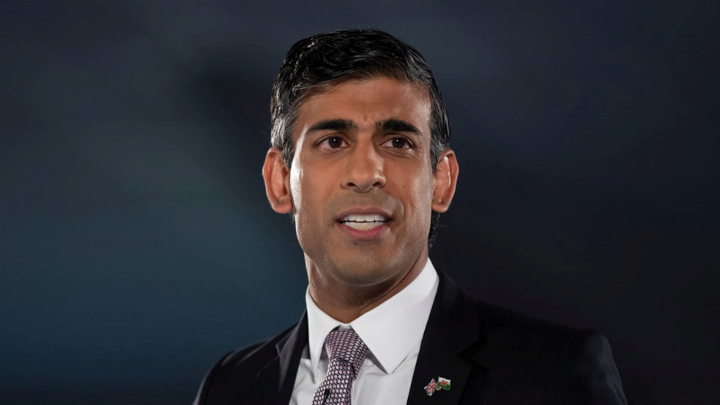UK government suffer angry backlash from industry over plan to delay climate pledges

RISHI SUNAK’s series of policy changes surrounding the UK government’s approach to net zero has drawn fierce criticism from industry, and environmental groups. The prime minister staged a snap press conference to announce that the government will push back a ban on the sale of new petrol and diesel cars until 2035, delay the phasing out of gas boilers, scrap policies that would force landlords to upgrade energy efficiency in their homes, and stop a ban on new oil and gas licenses in the North Sea.
Insisting the UK is still on a path to delivering net zero, Sunak denied he was “watering down” climate targets, and instead framed his decision on easing the burden on families who would suffer financially because of net zero pledges. “We're now going to have a better, more honest debate about how we get there… That's the only realistic path to net zero, consent, not imposition,” Sunak said in his speech.
However, Dave Reay, executive director of Edinburgh Climate Change Institute, University of Edinburgh, called the decision “pathetic” and “not pragmatic”, adding that “rolling back on emissions cuts for short-term political gain will undermine the transition to net zero and with it the future opportunities, prosperity, and safety of the entire country.”
Even former US vice-president Al Gore waded in, calling Sunak’s decision "the wrong thing".
It’s a far cry from 2019 when the UK became the world’s first major economy to pass laws to end its contribution to global warming by 2050.
This was followed two years later by the government enshrining into law another ambitious goal of reducing emissions by 78% by 2035 compared to 1990 levels, based on recommendations by the independent Climate Change Committee’s sixth Carbon Budget report. The move was hailed by the government as the world’s most ambitious climate change target, and they called on world leaders to “follow our lead and match our ambition”.
Since 1990, emissions within the UK have fallen by 48.7% up to the end of 2022 – excluding international aviation and shipping. This reduction is greater than other countries in the G7. However, the decision to approve the UK's first new deep coal mine in 30 years and plans for a major new oilfield off the coast of Scotland have added to growing fears that government efforts to scale up climate action is now "worryingly slow".
The CCC warned that the UK has now lost its leadership on climate issues and said it needed to go away and do the calculations to see if the new targets still deliver the government’s promises. They conceded that Sunak’s announcement is likely to take the UK further away from being able to meet its legal commitments. That, coupled with the recent unsuccessful offshore wind auction, “gives us concern,” the CCC said.
Many others have also voiced their concerns, including some high-profile Conservatives, and carmaker Ford. Although Sunak said pushing back a ban on sales of new petrol and diesel cars to 2035 would align the UK’s approach with countries like Germany, France, and Spain, Ford warned it would undermine business certainty. Chris Norbury, chief executive of E.ON UK, said that delaying some environmental targets to reduce pressure on household budgets during a cost of living crisis was a “false argument”, while Jürgen Maier, a former chief executive of Siemens UK called it a “disaster”. “It’s a disaster for jobs, well-paid jobs. And it’s a disaster for business confidence and investment – and we need exactly the opposite,” he said.
Geraint Evans, chair of IChemE’s Clean Energy Special Interest Group, told TCE that he was disappointed to learn of the government’s decision as it will delay vital actions, the impacts of which are already being seen with heavier storms and longer and more severe heatwaves in the UK alone. “The UK has an important responsibility to both provide climate leadership and to address the causes of climate change: the problem of CO2 in our atmosphere is a cumulative one, and the UK continues to be a top ten cumulative CO2 emitter in the world.”
Some positives?
While many said the announcement was nothing but a blatant attempt by Sunak to politicise climate change in the face of a general election next year, his speech was peppered with plans that had a more positive connotation, at least on the face of it. These included mentions of reforms to energy infrastructure and the national grid, and a new Green Future Fellowship.
Commenting on the former, David Simmonds, former Shell manager and author of Engineering Net Zero series, said: “Delaying the phase-out of petrol and diesel cars, and gas boilers will provide more time to plan and implement necessary power generation and grid expansions. It also provides a window for the government’s industrial cluster plan to bear fruit which should lead to conversion of our gas grid to hydrogen, opening up more consumer options such as hydrogen hybrid heat pumps and cars.”
The Royal Academy of Engineering have been asked to lead the Green Future Fellowship, which according to its president Sir Jim McDonald “will develop the vital engineering expertise necessary to scale up, integrate and deliver these technologies to achieve a just and well-managed transition to a low-carbon economy.
Recent Editions
Catch up on the latest news, views and jobs from The Chemical Engineer. Below are the four latest issues. View a wider selection of the archive from within the Magazine section of this site.




